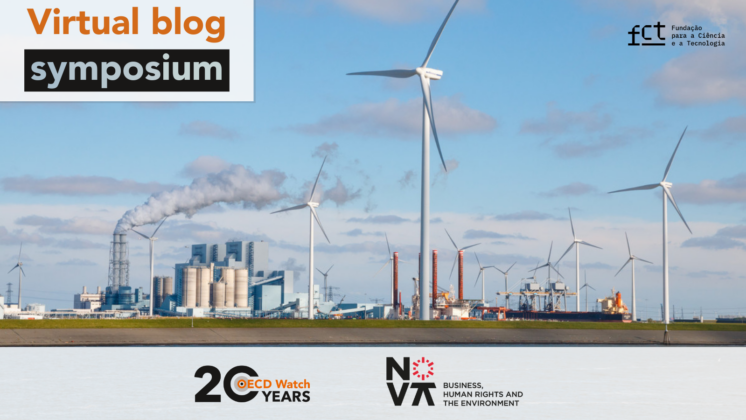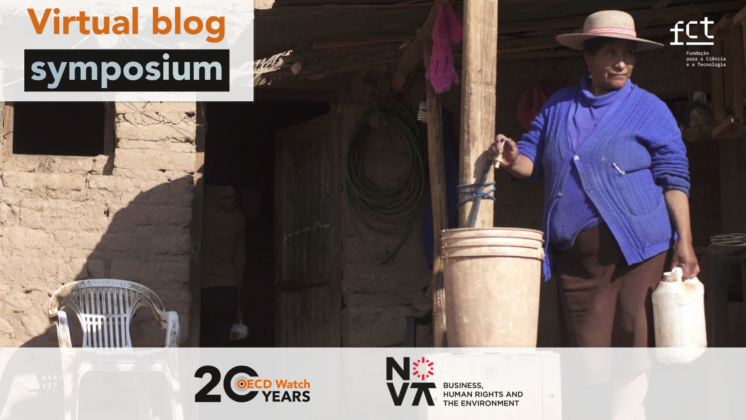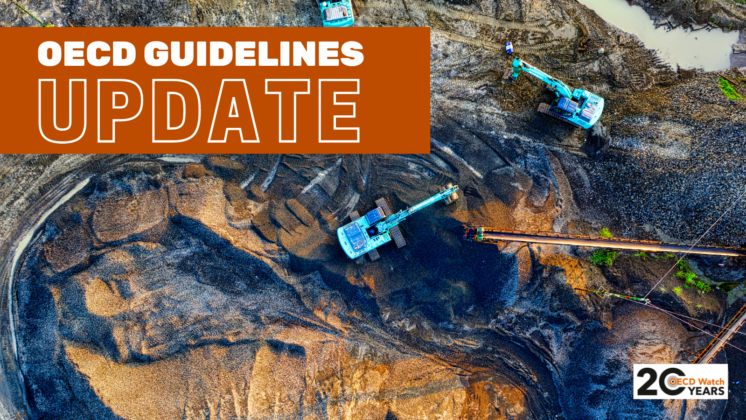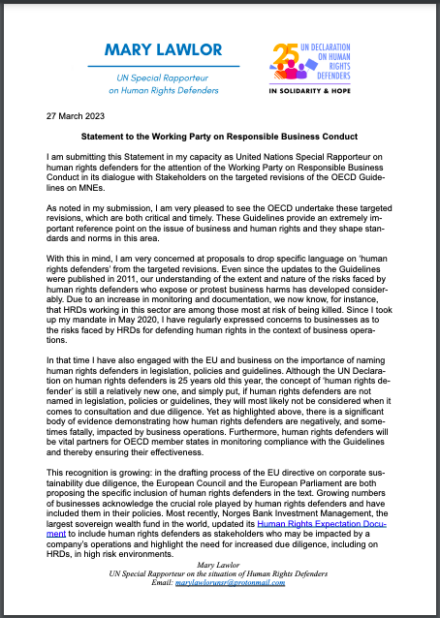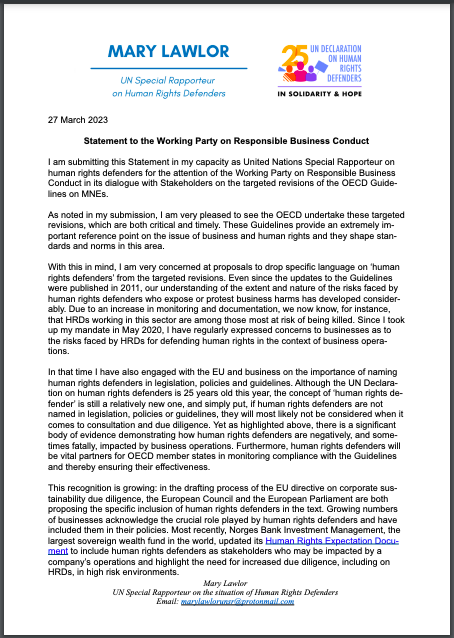In January 2024, the OECD’s Responsible Business Conduct Unit launched a multistakeholder project to develop a framework to guide businesses in supporting a Just Transition. To guide this process, the OECD has set up a multistakeholder advisory group to provide feedback to guide the project’s scope and the framework’s eventual content. OECD Watch is one member of this advisory group, alongside other civil society organisations, trade unions, academia, businesses, and governments.
OECD Watch is also facilitating broader civil society input through its position on the advisory group, by establishing an informal working group of over 50 civil society organisations from around the world to share feedback and research to strengthen OECD Watch’s participation and submissions. OECD Watch’s aim is to ensure diverse civil society perspectives, and in particular those of the people and groups most impacted by the climate crisis and the transition, help shape the project’s outputs.
OECD Watch is raising key demands on rights, remedy, and sustainable practices
During the process key asks raised by civil society so far include:
- Protection of the rights of Indigenous Peoples and marginalised communities: The framework must ensure that the rights of Indigenous Peoples, including to Free, Prior, and Informed Consent (FPIC), are properly respected by businesses in the context of the transition. In addition, the framework must provide clear guidance on what meaningful stakeholder engagement with impacted communities looks like, including addressing issues around benefit sharing and access to and ownership over clean energy.
- Reduction of consumption: The Guidelines outline that businesses must contribute to sustainable consumption and production, including through promotion of circular economy approaches. This is an incredibly important aspect of the just transition across sectors, and the framework must establish clear best practices for businesses to play their role in reducing consumption.
- Responsible disengagement and remediation: A just transition requires companies to develop, through meaningful engagement with trade unions, local communities, civil society organisations and governments, responsible disengagement plans that include remediation for past and existing harms. This underpins the concept of due diligence and must be explored in depth in the framework.
Background of the OECD’s new framework to guide business support for a just transition
The OECD’s just transition project takes the recently updated OECD Guidelines for Multinational Enterprises on Responsible Business Conduct (Guidelines) as a starting point and builds upon them by providing clarity and good practice on how the standards set out in the Guidelines should be implemented within the context of the just transition to a net-zero economy.
The project runs until May 2026 and consists of both a research element and the development of a responsible business conduct framework for a just transition. The research, led by the OECD, will be conducted through interviews and workshops with key experts across sectors and issues to identify current practices, gaps, and best practice examples in relation to the transition. This will feed into the drafting of the framework, which will also be supported by external multi-stakeholder reports and regular discussion (via written and oral feedback) to shape iterative drafts of the framework.
The framework itself will consist of an introduction that sets out the context and purpose of the document, followed by top-line principles for businesses on the just transition. The main body of the framework will be contained in a section with frequently asked questions that provide detailed information on how to apply the principles and broader RBC framework to the context of the transition.
The project should fill a key gap in practical guidance on RBC for a just transition
While the updated Guidelines already refer to the need for a just transition and include basic concepts on the business role in ensuring it, detail and practical guidance are lacking – not only in the Guidelines, but in the broader BHR policy landscape. The framework to be produced as part of this project can – if sufficiently robust in scope and content – fill that gap by providing detailed guidance on what business support of a just transition should look like in practice.
Like the due diligence guidance documents published by the OECD Investment Committee, we anticipate this framework may be a valuable reference for complaints, policy making, and legislative discussions addressing value chain due diligence in relation to the just transition.

